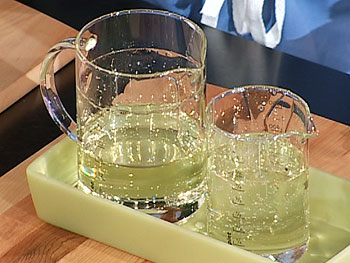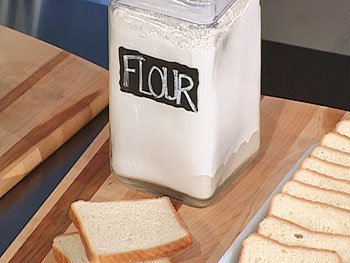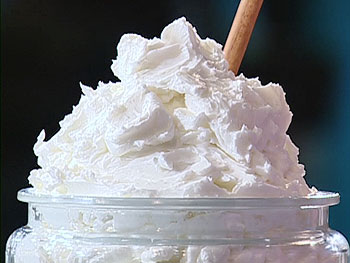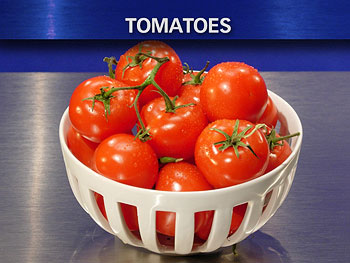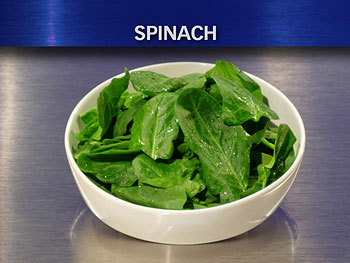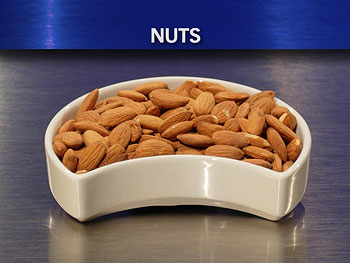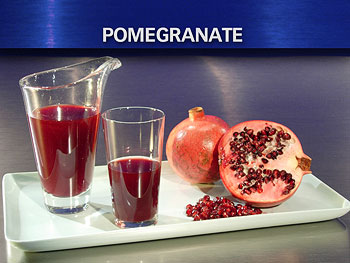Foods to Avoid—Sugar
When you eat or drink sugar, Dr. Oz says the sudden energy surge your body experiences is followed by an insulin surge that rapidly drops the blood sugar level—so two hours later, you feel famished and tired. To keep an even keel, Dr. Oz says to replace simple carbohydrates with complex ones so the absorption is more controlled and you experience long-term satiety. "Sugar is supposed to be eaten, of course," says Dr. Oz, "but it should come together with fat or some element like fiber—as you would find in fruit—so you can absorb it a bit more slowly."Foods to Avoid—High Fructose Corn Syrup
Although they taste sweet, Dr. Oz says food products that contain high fructose corn syrup should be avoided. Dr. Oz says the body processes the sugar in high-fructose corn syrup differently than it does old-fashioned cane or beet sugar, which in turn alters your body's natural ability to regulate appetite. "It blocks the ability of a chemical called leptin, which is the way your fat tells your brain it's there," says Dr. Oz. "It's not so much the 150 calories in the soda pop—it's the fact at that same meal you will normally consume an extra hundred calories of food than you would have."
Foods to Avoid—Enriched Wheat Flour (White Flour)
Contrary to what its name suggests, Dr. Oz says enriched flour is actually poor in nutrition because most of the grain's nutrients are destroyed in the refining process. "The reason they enrich it is because they already stripped out anything that was worth a darn in it, and they add a little bit back so it doesn't look so bad," says Dr. Oz.
Instead, he says to look for whole grains and whole grain flours. "It has its kernels, it has its B vitamins—all the things you want to be in there," says Dr. Oz.
Instead, he says to look for whole grains and whole grain flours. "It has its kernels, it has its B vitamins—all the things you want to be in there," says Dr. Oz.
Foods to Avoid—Saturated Fat
Found mainly in animal products, Dr. Oz says to avoid saturated fats that are solid at room temperature, like lard. "You can actually use this kind of material for furniture polish—lots of fun things—but don't put it in you," he says.
Foods to Avoid—Hydrogentated Oil
To increase their shelf life, Dr. Oz says certain oils are hydrogenated. This process turns the oil into a solid at room temperature, but it also makes the oil unhealthy. "This stuff is great because it doesn't go bad, but it's very bad for you," says Dr. Oz. Avoid food products that contain hydrogenated oil, often labeled as "trans fats."
What to Start Eating—Healthy Oils
Knowing the five ingredients to avoid is just the beginning. Dr. Oz says it's just as important to add healthy foods to your diet! Learn the six superfoods that actually reverse the aging process and keep you healthy.
Dr. Oz says there are many healthy oils, such as olive oil, sesame seed oil, flaxseed oil, grape seed oil and canola oil. To maximize their health benefits, Dr. Oz says good oils need to be used properly. "Keep it in a dark bottle or in your refrigerator—that's how to keep it healthy so it doesn't go rancid," says Dr. Oz. "Healthy oils are delicate, you have to treat them delicately."
Dr. Oz also says overheating good oils during cooking can damage them. "Don't cook the oil, cook the food," says Dr. Oz, "which means put a tiny bit of oil in the pan, put the food in the oil and then put the food with the oil on it in the pan—that way the oil is preserved. It doesn't heat up and it doesn't get damaged by the heat."
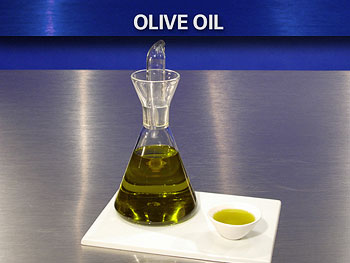
Dr. Oz says there are many healthy oils, such as olive oil, sesame seed oil, flaxseed oil, grape seed oil and canola oil. To maximize their health benefits, Dr. Oz says good oils need to be used properly. "Keep it in a dark bottle or in your refrigerator—that's how to keep it healthy so it doesn't go rancid," says Dr. Oz. "Healthy oils are delicate, you have to treat them delicately."
Dr. Oz also says overheating good oils during cooking can damage them. "Don't cook the oil, cook the food," says Dr. Oz, "which means put a tiny bit of oil in the pan, put the food in the oil and then put the food with the oil on it in the pan—that way the oil is preserved. It doesn't heat up and it doesn't get damaged by the heat."

What to Start Eating—Garlic
Dr. Oz says garlic is great for our bodies. "It actually helps the bacteria in your intestines and it also relaxes the arteries and it has a benefit with cancer," says Dr. Oz. "It's a great thing to add to your diet. It's present in a lot of cultures—we've forgotten it in America."
Salad dressing made with fresh garlic, lemon and olive oil is one of Oprah's favorites. "It's a perfect dressing," says Dr. Oz. "It's the best way to have olive oil because you haven't heated it and you haven't damaged it."
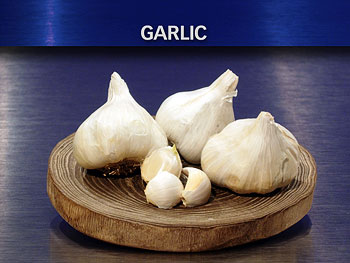
Salad dressing made with fresh garlic, lemon and olive oil is one of Oprah's favorites. "It's a perfect dressing," says Dr. Oz. "It's the best way to have olive oil because you haven't heated it and you haven't damaged it."

What to Start Eating—Tomato Sauce
Dr. Oz recommends eating 10 tablespoons of tomato sauce per week. "Inside the tomato is a chemical called lycopene," says Dr. Oz. "This chemical has a wonderful effect—it's an antioxidant."
Dr. Oz says there are added benefits from eating tomato sauce or paste as opposed to plain tomatoes. "A raw tomato is fine, too, but if you get a little fat with it—either with some nuts or a little olive oil and dressing—then it's perfect," says Dr. Oz. "It helps you absorb it better into your intestinal system."
Dr. Oz says there are added benefits from eating tomato sauce or paste as opposed to plain tomatoes. "A raw tomato is fine, too, but if you get a little fat with it—either with some nuts or a little olive oil and dressing—then it's perfect," says Dr. Oz. "It helps you absorb it better into your intestinal system."
What to Start Eating—Spinach
Jam-packed with nutrients, Dr. Oz says spinach is out-of-sight. "This is the best thing for your eyes," he says. "It's better than carrots, and a lot of macular degeneration—which is a tragic ailment that affects vision—can actually be avoided by eating these kinds of foods that are rich in carotenoids and also have folic acids and a lot of other benefits." Sauté spinach with a little garlic and olive oil for a perfect side dish.
Not only do pomegranates have extraordinary health benefits—they taste good, too. "It's a little sweet for me so I mix it with water, but pomegranates or their juice are worth trying out," Dr. Oz says.
What to Start Eating—Raw Nuts
To maximize the benefits of the healthy oils found in nuts such as almonds, hazelnuts or walnuts, Dr. Oz says they should be eaten raw and stored in the refrigerator. "When you roast a nut, the healthy oils that are in there become damaged," Dr. Oz says. "The oils aren't supposed to be heated and damaged—they're supposed to be taken in their natural formWhat to Start Eating—Pomegranates
Dr. Oz says research on the health benefits of pomegranates has shown promising results. "We've done studies on them showing how they actually can change the way your arteries age—it's a very potent antioxidant," says Dr. Oz. "It also probably affects cancer rates, especially prostate cancer, but those studies haven't been finished yet."Not only do pomegranates have extraordinary health benefits—they taste good, too. "It's a little sweet for me so I mix it with water, but pomegranates or their juice are worth trying out," Dr. Oz says.
